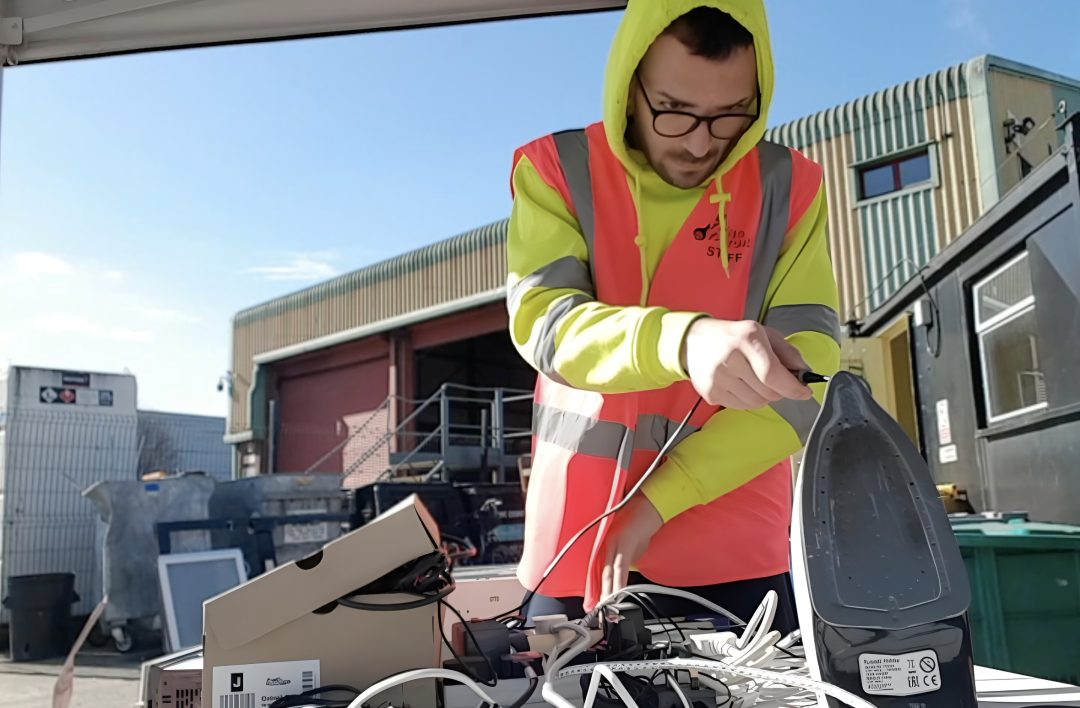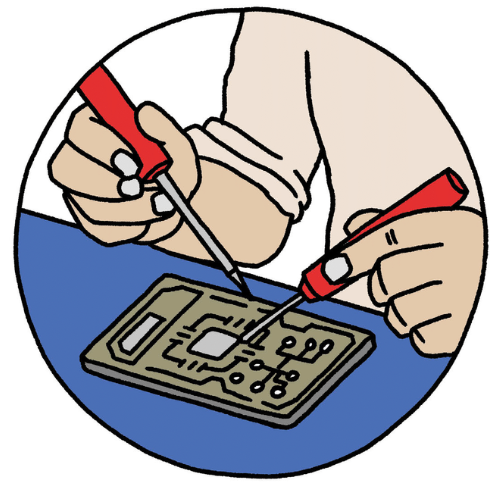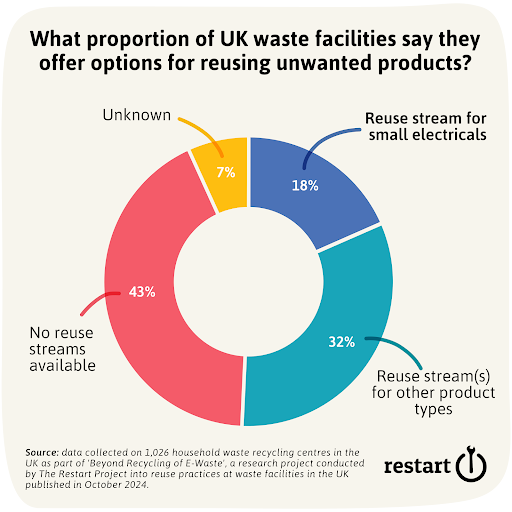Project Description:
Recycling e-waste is not good enough and yet is a main priority of the UK’s current waste strategy. Reusing small electrical and electronic devices instead is generally far more resource efficient and planet-friendly.
By focusing so heavily on recycling, we may be missing opportunities to save energy, reduce waste, lower emissions and save households money.
But to understand the size of these opportunities, we need to understand the
current landscape and what policy changes are needed to help us move beyond recycling. We are investigating what reuse options are currently available at household waste and recycling centres (HWRCs) and the challenges of making reuse more widely available.
Together, we will map reuse at HWRCs across the UK and make the information available. We’ll also develop policy recommendations and campaign for changes that could make reuse accessible to more people.
Project Type: Sustaining Grant
Theme: Sustainable Lifestyles, Waste
Mentor:Patrícia Tiago
Beyond Recycling of E-Waste
In the UK we shred tens of thousands of working and repairable devices every week for recycling. But fixing or reusing them instead could reduce waste, lower emissions and save households money.
The Restart Project worked with our community to investigate what reuse options are currently available at household waste facilities and the challenges of moving beyond recycling of e-waste.
What did we do?
Together with 48 citizen scientists and support from IMPETUS, we mapped reuse at over 1,000 waste facilities across the UK, gauged public attitudes, interviewed industry insiders and produced national policy recommendations.

Over the course of five months, we conducted extensive desk research, contacted local authorities for information and visited a small number of sites.
What did we learn?
Repair and reuse are incredibly popular
The UK public strongly supports reuse and repair. 85% of respondents to a national survey conducted for this report thought that electrical products in good condition brought to waste facilities should be kept in use through being repaired/refurbished (38%) or donated/sold (47%). Only 6% thought these products should be recycled.
Donating electrical for reuse is not possible at most waste facilities
Despite public expectations, only around half of UK waste facilities (51%) offer any kind of reuse stream for unwanted products, mostly in the form of second-hand shops. Even where such provision exists, the types of products accepted are limited; less than a fifth (18%) offer a reuse stream for small electronic and electrical equipment.
In most cases, products donated for reuse must also be in good working condition, with repair being exceptionally rare for small electronic and electrical equipment.
The situation is broadly similar across the UK
Our data suggests that this overall trend applies across the whole UK. But we did find some variation between constituent countries, which may be accounted for by local authorities adopting differing approaches to facilitating reuse within and outside of waste facilities, especially in Scotland.
How can we prioritise reuse?
Overhaul Extended Producer Responsibility rules
An overhaul of the current extended producer responsibility (EPR) rules is needed to drive the establishment of local and national infrastructure to keep products in use for longer and use our resources more efficiently. This should include:
- A binding requirement to increase reuse in collaboration with local reuse and repair initiatives. This needs to be a separate target, prioritised over recycling.
- The introduction of complementary targets for overall waste reduction.
- Using EPR to drive improvements in product design and help fund initiatives that support reuse and repair, such as repair vouchers.

Support the Repair & Reuse Declaration
Our Repair & Reuse Declaration calls on politicians to make the UK a leader by removing barriers to repair and reuse. Hundreds of community groups, allied organisations and businesses have signed it and it’s been endorsed by a growing list of Members of Parliament.
Such policy initiatives can help us move beyond recycling: a popular and achievable way to lower emissions, reduce waste and save households money.






